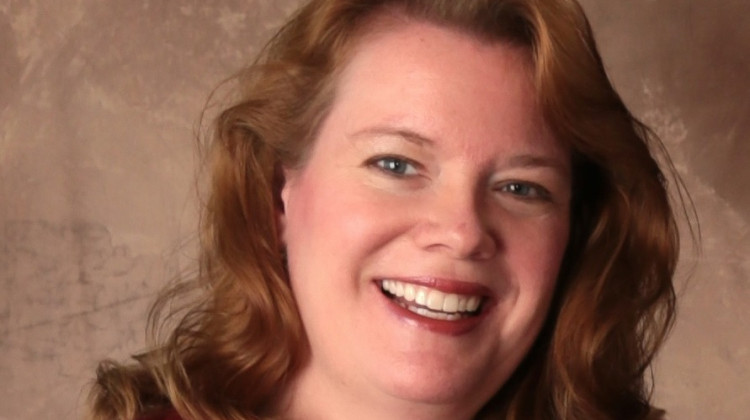A Department of Child Services bill easily clears the House. A Senate panel alters with a fertility fraud bill. And House lawmakers will heed a sexual harassment policy for the first time.
Department Of Child Services
The DCS bill aims to ease burdens on the agency’s caseworkers. That includes changes to the way their caseloads are measured. And the measure extends the amount of time caseworkers are given to begin and end initial assessments when a child is reported to be in danger. The House approved the bill 100-0.
Another bill made progress this week, to track more information on child fatalities. Sen. Jean Leising (R-Oldenburg) authored the bill, which would require DCS to note whether the child was in foster care at the time of death, or had been returned to their family.
Fertility Fraud
A fertility fraud bill in the Senate came about after an Indianapolis physician used his own sperm to inseminate dozens of women without their knowledge or consent. The bill allows victims of fertility fraud to sue in civil court. The measure originally included a criminal penalty – but Sen. Mike Young (R-Indianapolis) had it removed. He says current law already makes fertility fraud a crime.
Sexual Harassment Policy
House lawmakers adopted a sexual harassment policy for the first time. The rules define sexual harassment and govern how the Ethics Committee will investigate claims and protect those who report inappropriate conduct. It also bars any sexual contact, even consensual, between legislators and interns.
The Senate adopted its own version of a sexual harassment policy earlier this session.
Pre-K Eligibility Expansion
More children would qualify for state-funded preschool under a proposal lawmakers on the Senate education committee approved Wednesday.
The bill would expand eligibility requirements allowing children living with a grandparent or a guardian who has a disability to participate in On My Way Pre-K.
On My Way Pre-K is available in 20 of Indiana’s 92 counties, and offers preschool funding to low-income families. Current rules require at least one parent or guardian has to be in school or working for a child to qualify.
Appointed Superintendent
Indiana’s governor will appoint the state’s next schools chief under a bill passed by House lawmakers Thursday.
Current law says the governor will begin appointing a secretary of education in 2025. Lawmakers passed that measure in 2017 after years of turmoil between state education officials and agencies, but left enough room in the timeline for Superintendent of Public Instruction Jennifer McCormick to seek a second term.
But McCormick announced last year she won’t run for re-election when her term ends, prompting calls from some lawmakers to change that timeline and allow the governor to appoint her successor in 2021, instead of hosting one last election.
Jail Overcrowding
State lawmakers want to help solve Indiana’s jail overcrowding problem by moving some inmates to Department of Correction facilities. Roughly half of Indiana county jails are over capacity.
Level 6 felons in county jails are low-level, non-violent offenders. Rep. Randy Frye’s (R-Greensburg) bill would allow overcapacity jails to move some of those felons to state Department of Correction facilities – if the DOC has space.
Critics of the bill are worried that the bill won’t solve overcrowding problems because most of the jail population isn’t Level 6 felons.
Legalize Hemp
The bill would establish an advisory committee to help state officials regulate hemp. This follows last year’s federal farm bill, which no longer classified it as a controlled substance, leaving Hoosier advocates hopeful state lawmakers will allow production in Indiana.
Advocates including researchers and farmers testified before the committee, saying it’s time for such a move. Lawmakers raised concerns about the cost of testing hemp production facilities.
The bill passed and moves to the full Senate.
Water Infrastructure Improvements
A bill that would help cities pay for things like water pipes and drains passed the House utilities committee Wednesday. It would take $20 million out of the state’s general fund each year and put it toward a loan program and other financial assistance for communities doing water infrastructure projects.
To be eligible for financial assistance, cities would have to try to collaborate with other towns on water infrastructure projects and create a plan for how they’ll use the dollars.
The bill also encourages communities to fix leaks and other issues that waste water. Cities could start getting the financial help from the state in July 2020.
The House’s financial committee, Ways and Means, will now review the bill.
Nurse Practitioner Practice
A bill to address health care provider shortages in Indiana was heard by a Senate committee Wednesday. The proposal would allow Advanced Practice Registered Nurses or APRNs to enter independent practice.
Right now, APRNs in Indiana need to be in a partnership with a physician to operate as a primary care provider who can prescribe. Lawmakers heard testimony on a bill that would allow private practice after a one-year partnership.
The Indiana Hospital Association supported the bill, but suggested increasing the partnership to three years.
APRNs are allowed to practice independently in 22 states and the District of Columbia.
 DONATE
DONATE








 Support WFYI. We can't do it without you.
Support WFYI. We can't do it without you.